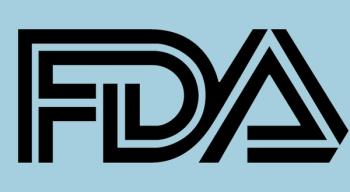
The FDA has granted an approval to Ontruzant (SB3; trastuzumab -dttb), a Herceptin (trastuzumab) biosimilar, for the treatment of patients with HER2-overexpressing breast cancer or metastatic gastric or gastroesophageal junction adenocarcinoma.

The FDA has granted an approval to Ontruzant (SB3; trastuzumab -dttb), a Herceptin (trastuzumab) biosimilar, for the treatment of patients with HER2-overexpressing breast cancer or metastatic gastric or gastroesophageal junction adenocarcinoma.

The addition of the investigational drug alisertib to a paclitaxel regimen showed promising activity in patients with recurrent ovarian cancer or advanced breast cancer.

Although chemotherapy and radical cystectomy are traditionally used to treat muscle-invasive disease, a recent analysis shows similar overall survival outcomes in patients treated with chemoradiotherapy.

For those facing cancer, encouraging words can often be good medicine.

Older adults may be at an increased risk for a heart attack or stroke five months before they are even diagnosed with cancer – a risk that peaked in the month prior to diagnosis, according to a report published in Blood.

Multiple myeloma is a type of blood cancer that originates in the bones. Here’s what you need to know about the disease.

A recent survey demonstrated the common tradeoffs most patients report regarding treatment decisions, highlighting the importance of shared decision making.

The show, “New Amsterdam” features a medical director of a hospital who has cancer. He talks honestly about his cancer journey. One of the statements he made to a colleague was, “Cancer changes everything – and nothing.”

Payer reimbursement requirements, uncertainties in reform policy, and cost of new treatments viewed as top threats

The Food and Drug Administration has accepted Roche’s supplemental biologics license application for Tecentriq (atezolizumab) plus chemotherapy for the frontline treatment of patients with metastatic non-squamous non-small cell lung cancer (NSCLC) who do not have EGFR or ALK genomic tumor aberrations.

Involving patients in the decisionmaking process is an important and welcome trend, because it incorporates their values and preferences in situations where there are no black-and-white answers as to which path is best.

It would be unrealistic to suggest that one is ever completely free of the shadow of cancer – after all, shadows are the direct result of light.

There is a way to do a little self-care and still learn the latest news in cancer advocacy and science. As survivors and those affected by cancer, we should have the luxury of doing both!

Patients with cancer who have other health issues are less likely to have discussions about – and participate in – clinical trials.

I never fully understood how ingrained my children were in my soul until I had to give serious thought to the end of my own life, and I knew I didn't want to face it without them.

While celebrating Christmas this year, there was a moment that really surprised me. My youngest stepson said something about being sorry he wasn’t more help when I was going through cancer.

How we deal with our cancer may be a matter of perspective.

The Food and Drug Administration approved Cabometyx (cabozantinib) tablets for the treatment of patients with hepatocellular carcinoma (HCC) who have been previously treated with Nexavar (sorafenib).

The Food and Drug Administration (FDA) has granted the investigational BTK inhibitor zanubrutinib (BGB-3111) a breakthrough therapy designation for the treatment of adult patients with mantle cell lymphoma (MCL) who have previously received at least one prior therapy, according to BeiGene, the company manufacturing the agent.

People who have experienced high exposures to gasoline might be at an increased risk for kidney cancer, according to recent research.

Treatment side effects are typically manageable for patients with metastatic kidney cancer, but patients must have open communication with their health care team about them.

Certain groups of pediatric and adolescent patients are less likely to receive fertility preservation consultation, recent research says.

Limbs affected by lymphedema require specialized care, but during months where temperatures can be extreme, a little extra effort is necessary.

Recent research found that outpatient palliative care improved survival and quality of life in patients with advanced cancer.

Two-time cancer survivor suggests a careful approach when researching your own cancer.

As cancer once again robbed me of the chance to make the holiday memories I had hoped for, it took a kid eating frozen pizza on Christmas Eve to remind me what really mattered.

In conjunction with Cervical Cancer Awareness Month, recognized in the month of January, here are some fast facts about the disease.

Three ways this metastatic breast cancer patient has made research participation a part of her life.

A recent meta-analysis has found no noticeable difference in immunotherapy’s efficacy based on patient sex.

A former caregiver's ongoing journey.